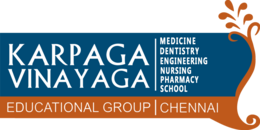- <
- About Us
- Academic
- Committees
- Accreditation
- Student support
- Research
- Group of Institutions
- Contact Us
- .
KVCET has established Civil Engineering Department in the year 2012.The Department offers undergraduate Programme in Civil Engineering. The Department collaborates with the construction industry, to improve innovation in technical education system. Students are not only made experts in technical aspects but also in interpersonal skills, a vital ingredient to excel in the fast-paced world. Well qualified and experienced faculty members form the department. The faculty members cover broad areas like Structural Engineering, Construction Engineering and Management, Environmental Engineering, Remote Sensing, Water Resources Engineering. The faculty members contribute to academic development by publishing books and presenting papers in international and national conferences. The labs are well equipped with state of the art equipment. The aim of the Department is to provide academic leadership in the area of education and training, research and development for improvement and innovations in Civil Engineering field.

Email:subbukvc@gmail.com
Ph.D.
33 years of academic and research experience at IRS, Anna University. Specialized in Remote Sensing and GIS; Photogrammetry and GPS
B.Tech – 35; M.Tech – 24
National: 16; International: 4
National: 35; International: 19
National:12; International: 4
He has been trained in the field of Advanced Photogrammetry and Global Positioning System at IPO & University of Hannour, Germany during 1986, deputed by Anna University.
S.No | Name of the faculty | Designation | Mode of faculty | Qualification |
1 | Dr.P.Kasinatha Pandian | Principal & Professor | Regular | Ph.D |
2 | Dr.L.Subbaraj | Dean & HoD | Regular | Ph.D |
3 | Mr.P.Radhakrishnamorthy | Associate Professor | Adjunct faculty | Ph.D |
4 | Ms.R.Priyavarshiny | Assistant Professor | Regular | M.E |
5 | Ms.S.Monisha | Assistant Professor | Regular | M.E |
6 | Ms.P.Pooraniya | Assistant Professor | Regular | M.E |
7 | Mrs.S.R.Lavanya | Assistant Professor | Regular | M.E |
8 | Mrs.A.Puspalatha | Assistant Professor | Regular | M.E |
9 | Mr.S.Raghuram | Assistant Professor | Regular | M.E |
10 | Ms.A.Jayashree | Assistant Professor | Regular | M.E |
Imparting Quality and Innovative Education to enhance Technical Manpower and Sustainable Infrastructure Development in the field of CIVIL ENGINEERING for Nation building.
PROGRAMME EDUCATIONAL OBJECTIVES
PROGRAMME OUTCOMES (2017)
On successful completion of the programme,
PROGRAM OUTCOME(2013)
Engineering Graduates will be able to:
KARPAGA VINAYAGA COLLEGE OF ENGINEERING AND TECHNOLOGY
DEPARTMENT OF CIVIL ENGINEERING
DEPARTMENT ACTIVITIES
GUEST LECTURE:
LABORATORY DETAILS
| S.No | Date | Topics | Event & Place | Name of the Person |
1 | 12-09-2014 & 13-09-2014 | National Level Technical Symposium | Won 2nd prize | A. Jayashree and M. Alagammai |
The Department of Civil Engineering has Department Library, Smart Class Rooms and well equipped laboratories that includes
which are well established with all the equipments from standard suppliers as demanded by the university . All the equipments are calibrated consistently to maintain its precision.
The Laboratories are periodically upgraded as per the curriculum and the recent trends in the area of Civil Engineering
DEPARTMENTAL LIBRARY
1. Total No. of books available – 776
2. No. of Journals available – 12
